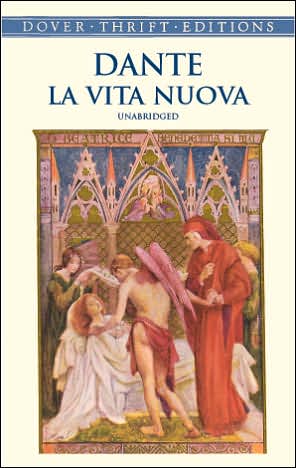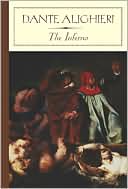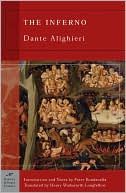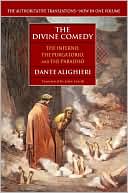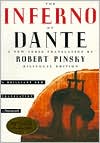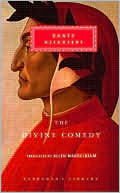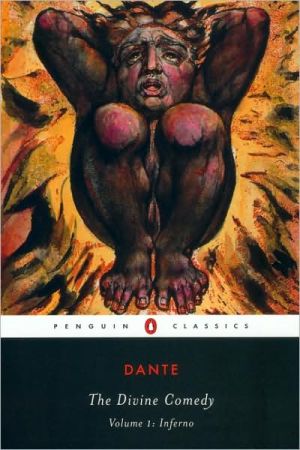La Vita Nuova
This celebration of the poet's passionate love for his immortal Beatrice weaves together rapturous sonnets and canzoni with prose commentaries and an autobiographical narrative. A predecessor to The Divine Comedy, La Vita Nuova (The New Life) also serves as an ever-relevant treatise on the art and technique of poetry.
Search in google:
La Vita Nuova (1292–94) has many aspects. Dante’s libello, or “little book,” is most obviously a book about love. In a sequence of thirty-one poems, the author recounts his love of Beatrice from his first sight of her (when he was nine and she eight), through unrequited love and chance encounters, to his profound grief sixteen years later at her sudden and unexpected death. Linked with Dante’s verse are commentaries on the individual poems—their form and meaning—as well as the events and feelings from which they originate. Through these commentaries the poet comes to see romantic love as the first step in a spiritual journey that leads to salvation and the capacity for divine love. He aims to reside with Beatrice among the stars.David Slavitt gives us a readable and appealing translation of one of the early, defining masterpieces of European literature, animating its verse and prose with a fluid, lively, and engaging idiom and rhythm. His translation makes this first major book of Dante’s stand out as a powerful work of art in its own regard, independent of its “junior” status to La Commedia. In an Introduction, Seth Lerer considers Dante as a poet of civic life. “Beatrice,” he reminds us, “lives as much on city streets and open congregations as she does in bedroom fantasies and dreams.”Publishers WeeklyBefore he wrote the Inferno and the Paradiso, Dante Alighieri wrote some of the world's most famous sonnets, describing his love for the young, unattainable, and (eventually) deceased Beatrice. Dante then embedded these sonnets in fluent prose describing his "new life" of love, explaining how he wrote the poems and what they meant. The short book that resulted became a testament to his feelings, a monument to Beatrice's beautiful purity, and an influential proof that poetry written in Florentine Italian could hold its own in a literary world ruled by scholarly Latin. (A long, clear foreword, from Stanford professor Seth Lerer, explains as much, and more.) Though the verse may not quite hold up as poetry in English, Slavitt, a prolific translator best known for classical texts, has made a consistently readable, even colloquial version of Dante's poems and prose, without compromising his strange extremes of emotion. Beatrice is at once the object of Dante's yearnings and the chaste symbol of all good hopes: "A word, or even a smile" from her, one poem says, "the memory of which lasts only a while,/ makes for strange and miraculous changes, and these/ endure forever in heart and soul and mind." (Sept.)
\ Publishers WeeklyBefore he wrote the Inferno and the Paradiso, Dante Alighieri wrote some of the world's most famous sonnets, describing his love for the young, unattainable, and (eventually) deceased Beatrice. Dante then embedded these sonnets in fluent prose describing his "new life" of love, explaining how he wrote the poems and what they meant. The short book that resulted became a testament to his feelings, a monument to Beatrice's beautiful purity, and an influential proof that poetry written in Florentine Italian could hold its own in a literary world ruled by scholarly Latin. (A long, clear foreword, from Stanford professor Seth Lerer, explains as much, and more.) Though the verse may not quite hold up as poetry in English, Slavitt, a prolific translator best known for classical texts, has made a consistently readable, even colloquial version of Dante's poems and prose, without compromising his strange extremes of emotion. Beatrice is at once the object of Dante's yearnings and the chaste symbol of all good hopes: "A word, or even a smile" from her, one poem says, "the memory of which lasts only a while,/ makes for strange and miraculous changes, and these/ endure forever in heart and soul and mind." (Sept.)\ \ \ \ \ Los Angeles TimesSome translators have been too academic, draining the vigor and wonder from this work but Slavitt's version stays true to the spirit...Considering all the books today about finding one's center in our crazy, image-driven culture, then, La Vita Nuova--especially in Slavitt's version--couldn't be more relevant.\ — Nick Owchar\ \ \ Times Literary SupplementThe Vita Nuova, Dante's first major work of certain attribution, is an original and sophisticated creation, too often cast aside as little more than a youthful prologue to the Divine Comedy...This handsome English edition of the Vita Nuova is translated by David R. Slavitt and prefaced by an engaging essay by Seth Lerer...Freed from the customary shackles of academic apparatus, the poetic quality of its lyrics freshly reinstated, the Vita Nuova's signature hybrid texture is here elegantly conveyed.\ — Tristan Kay\ \
